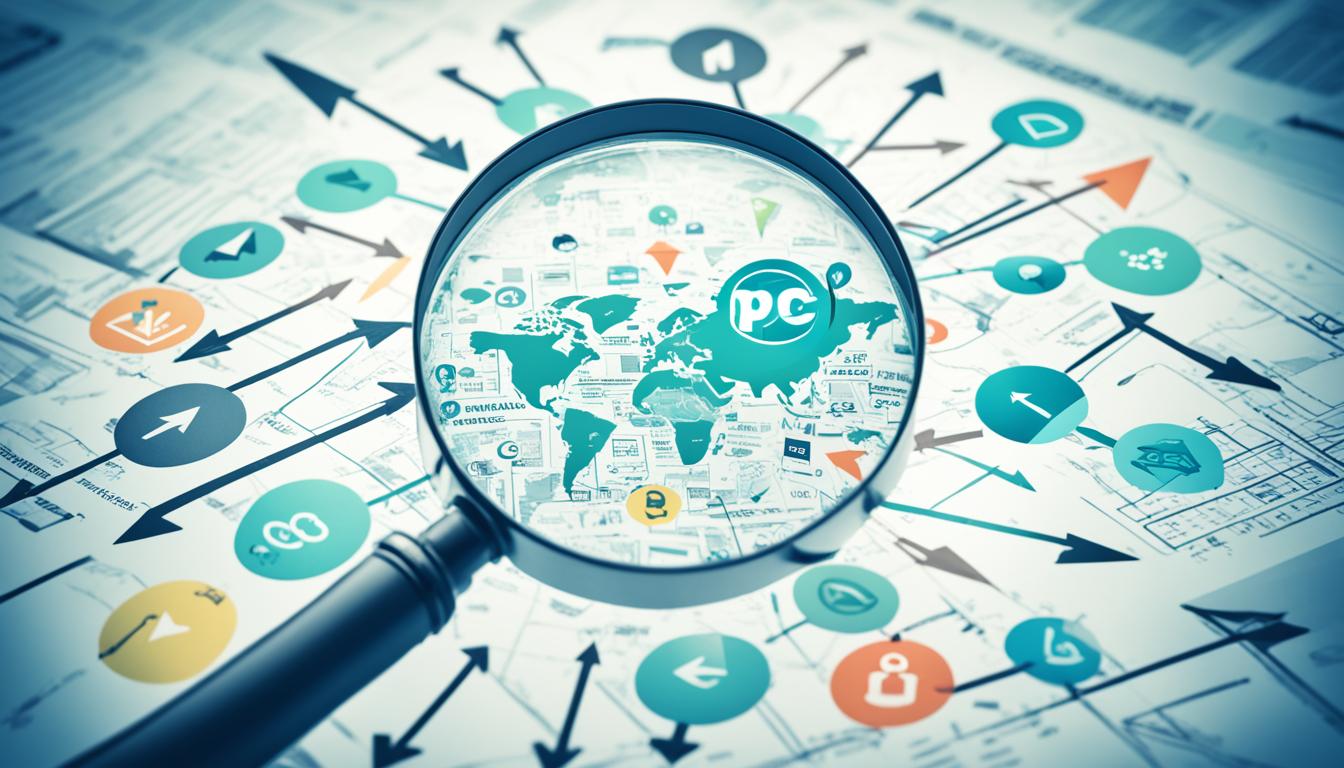In today’s fast-paced world, taking time to nurture your mental health is more important than ever. Chronic stress can lead to serious health issues, including depression and anxiety1. By focusing on intentional actions that promote well-being, you can build resilience and improve your overall quality of life.
Integrating mindfulness and other strategies into your daily routine can help reduce stress and enhance emotional balance. Studies show that activities like journaling and gratitude exercises can significantly boost mental health2. These simple yet powerful tools can make a big difference in how you feel each day.
To support your journey, I’ve curated a digital library filled with e-books, online courses, and free webinars. These resources are designed to help you develop skills that foster well-being. Explore them today at digitals.anthonydoty.com and take the first step toward a healthier, more balanced life.
Key Takeaways
- Prioritizing mental health reduces the risk of stress-related issues.
- Mindfulness activities can improve emotional balance and focus.
- Journaling and gratitude exercises enhance mental well-being.
- Access a digital library for e-books, courses, and free webinars.
- Small, intentional actions can lead to significant improvements in quality of life.
Understanding Self-Care Practices and Their Importance
Taking intentional steps to care for yourself is essential in managing life’s challenges. The World Health Organization (WHO) defines self-care as the ability to promote health, prevent disease, and cope with illness, with or without professional support3. It’s not just about pampering; it’s a purposeful action to maintain balance and health.
Defining Self-Care and Its Dimensions
Self-care includes physical, mental, and emotional aspects. For example, physical self-care might involve regular exercise or a balanced diet. Mental self-care could include mindfulness or journaling. Emotional self-care focuses on managing stress and fostering positive relationships.
Research shows that these practices reduce anxiety, improve focus, and increase happiness4. They also help manage chronic conditions like heart disease and diabetes3.
The Impact on Mental, Physical, and Emotional Health
Engaging in self-care can transform your daily life. It reduces stress, boosts productivity, and enhances relationships5. For instance, spending just five minutes a day on self-care can lead to significant improvements in overall health4.
Here’s how self-care benefits different areas of life:
| Aspect | Benefits |
|---|---|
| Mental Health | Reduces anxiety, improves focus, and boosts happiness. |
| Physical Health | Strengthens the immune system and lowers the risk of chronic diseases. |
| Emotional Health | Enhances relationships and increases self-esteem. |
Despite its benefits, many people struggle to prioritize self-care. A common misconception is that it’s selfish or time-consuming. In reality, it’s a vital part of maintaining overall well-being.
To get started, consider creating a self-care plan. This structured roadmap can help you balance work, family, and personal needs. Explore digital resources like e-books and online courses to develop your routine. Visit digitals.anthonydoty.com for tools to support your journey.
Exploring Physical, Emotional, and Mental Well-Being
Balancing physical, emotional, and mental health is key to thriving in today’s demanding world. Each aspect of well-being plays a vital role in how we handle stress, build resilience, and enjoy life. Let’s dive into actionable strategies to nurture every part of yourself.
https://www.youtube.com/watch?v=JMNR8nzVbmM
Physical Self-Care Strategies
Taking care of your body is the foundation of overall health. Regular exercise, like brisk walking, can boost mood and energy levels6. Pair this with a balanced diet rich in proteins, essential fats, and vitamins to support both physical and mental health6.
Sleep hygiene is another critical factor. A consistent sleep schedule helps improve focus and reduces the risk of burnout7. Even small changes, like limiting screen time before bed, can make a big difference.
Emotional Self-Care Techniques
Managing emotions is essential for maintaining balance. Journaling is a powerful tool to process feelings and reduce stress8. Creative expression, such as painting or writing, can also provide an emotional outlet.
Building strong relationships is another way to support emotional health. Good connections offer a sense of belonging and emotional support8. Take time to nurture these bonds, even if it’s just a quick check-in with a friend.
Mental Self-Care Approaches
Mental well-being requires intentional effort. Mindfulness practices, like meditation, can improve focus and reduce anxiety8. Engaging in hobbies or learning new skills also boosts self-confidence and provides a sense of purpose8.
Consider a digital detox to reduce mental clutter. Limiting screen time can help you reconnect with yourself and prevent burnout7. Even a few minutes of quiet reflection each day can make a difference.
Regularly scheduling time for these activities is crucial. Whether it’s a one-minute breathing exercise or a longer workout, consistency is key. For more detailed strategies, explore this comprehensive guide on building a well-rounded routine.
Creating a Personalized Self-Care Plan
Crafting a plan tailored to your needs can transform how you manage stress and boost your well-being. With 80% of individuals reporting regular stress, a structured approach is essential9. A personalized plan ensures you address your unique challenges and achieve lasting balance.
Identifying Your Unique Needs
Start by assessing areas where you feel overwhelmed. Are you struggling with work stress, emotional fatigue, or physical exhaustion? Research shows that 60% of individuals feel overwhelmed by their responsibilities9. Identifying these pain points helps you focus on what matters most.
Consider journaling to track your daily experiences. This activity can reveal patterns and highlight areas needing attention. Reflective practices like this have been linked to a 30% improvement in emotional well-being10.
Setting Realistic and Achievable Goals
Once you’ve identified your needs, set small, manageable goals. For example, commit to a 5-minute meditation session each morning. Studies show that consistent meditation can reduce anxiety levels by 60%10.
Break larger goals into actionable steps. If improving physical health is a priority, start with a 10-minute walk daily. Regular exercise releases endorphins and serotonin, which improve mood and cognitive function11.
Remember, a structured plan can lead to a 40% increase in life satisfaction9. Experiment with different activities to find what works best for you. Flexibility is key to long-term success.
Quick Self-Care Practices for Busy Days
Even on the busiest days, small moments of care can make a big difference in how you feel. When time is tight, it’s easy to neglect your well-being. But research shows that even brief breaks can reduce stress and boost energy12. These quick strategies are designed to fit seamlessly into your hectic schedule.

One-Minute Boosters
You don’t need hours to refresh your mind and body. Start with these one-minute activities:
- Mindful Breathing: Take deep breaths to calm your nervous system and improve focus13.
- Hydration: Drink a glass of water to boost energy and support overall health13.
- Stretching: Stand up and stretch to release tension and improve circulation13.
Five to Ten Minute Strategies
If you have a bit more time, try these effective strategies:
- Mini Digital Detox: Step away from screens to reduce mental clutter and improve focus14.
- Gratitude Journaling: Write down three things you’re grateful for to shift your mindset and reduce stress13.
- Quick Walk: A short walk can boost concentration and energy levels13.
These practices aren’t just quick fixes—they’re essential for maintaining balance. Studies show that even brief moments of mindfulness can lower cortisol levels and improve mood13. Scheduling these breaks is a necessity, not an indulgence, to meet your need for self-renewal.
“Small, intentional actions can lead to significant improvements in how you feel each day.”
By integrating these strategies into your routine, you’ll notice a positive shift in your sense of well-being. Start today and see how these quick practices can transform your busy days.
Incorporating Self-Care into Daily Routines
Building daily rituals that prioritize your well-being can transform how you navigate life’s challenges. Consistency is key to creating habits that stick and make a real difference. By integrating small, intentional actions into your day, you can manage stress, boost your mood, and improve overall health15.
Establishing Daily Rituals
Start your day with a simple morning routine. For example, spend five minutes practicing mindfulness or writing in a gratitude journal. These activities can set a positive tone for the day and help you focus16.
Evening rituals are just as important. A calming activity, like reading or stretching, can help you unwind and improve sleep quality16. Consistency in these practices builds resilience and reduces emotional strain.
Here are some quick rituals you can try:
- Morning: Drink a glass of water to hydrate and energize your body16.
- Midday: Take a short walk to clear your mind and boost concentration16.
- Evening: Reflect on three things you’re grateful for to end the day on a positive note16.
Having a support system can also keep you on track. Share your goals with a friend or family member who can encourage you. This accountability helps maintain discipline and reinforces your commitment to well-being15.
Here’s how daily rituals benefit your life:
| Aspect | Benefits |
|---|---|
| Emotional Health | Reduces stress and improves mood16. |
| Physical Health | Boosts energy and supports overall wellness16. |
| Mental Clarity | Enhances focus and productivity16. |
“Small, consistent actions lead to lasting change. Prioritize your well-being every day.”
By making these rituals a part of your routine, you’ll notice a significant improvement in how you handle stress and emotions. Start small, stay consistent, and watch how these habits transform your life.
Building Self-Care Communities and Support Networks
Creating meaningful connections can transform your journey toward better health and happiness. When you surround yourself with like-minded individuals, you gain support, accountability, and inspiration. Research shows that social connections are vital for mental health, reducing stress and enhancing overall well-being17.
One of the best things you can do is join a group or community that shares your goals. Whether it’s a local meetup or an online platform, these spaces provide a safe way to share experiences and learn from others. Mutual support can even serve as an effective treatment for stress, helping you feel less isolated18.
Connecting with Like-Minded Individuals
Start by exploring local groups or online forums focused on well-being. These communities often host events, workshops, and discussions that can enrich your journey. Sharing your self-care plan with others can inspire them and provide you with valuable feedback19.
Here are some ways to connect:
- Join Online Platforms: Websites and apps dedicated to wellness offer a convenient way to meet people with similar interests.
- Attend Local Meetups: Look for groups in your area that focus on mindfulness, fitness, or other well-being activities.
- Participate in Workshops: These events are a great way to learn new skills and build relationships.
Mutual support can lead to incredible outcomes. For example, many people find that sharing their struggles and successes with a community helps them stay motivated and accountable17.
| Benefit | Impact |
|---|---|
| Emotional Support | Reduces stress and fosters a sense of belonging18. |
| Accountability | Helps you stay committed to your goals19. |
| Inspiration | Encourages you to try new things and grow17. |
“The way we connect and treat one another is integral to creating an environment of shared wellness.”
By fostering these connections, you’re not just improving your own well-being—you’re contributing to a healthier, more supportive community. For more insights on building these networks, visit the World Health Organization’s guide on self-care interventions.
Leveraging Digital Resources to Boost Your Self-Care Skills
Harnessing digital tools can revolutionize how you approach your well-being journey. With over 6.75 million daily internet queries on health-related topics, it’s clear that people are turning to technology for support20. Digital platforms like digitals.anthonydoty.com offer e-books, courses, and webinars designed to help you thrive.
Digital Library and Online Courses
Digital libraries provide a wealth of knowledge at your fingertips. From mindfulness techniques to fitness plans, these resources cater to every area of your life. Online courses, in particular, allow you to learn at your own pace, making it easier to integrate new habits into your routine21.
Studies show that engaged individuals who use digital tools cost healthcare systems 21% less in future years20. This highlights the long-term benefits of investing in your well-being through accessible, high-quality resources.
FREE Webinars and Interactive Learning
Free webinars offer a unique opportunity to gain insights from experts without leaving your home. These sessions often focus on practical strategies, like transforming your night routine into a restorative practice. Interactive learning also fosters deeper emotional and practical health insights21.
For example, platforms like CyberRwanda demonstrate how digital tools can increase access to safe, well-informed information21. This approach empowers users to take control of their health in meaningful ways.
“Digital self-care interventions enhance health behavioral support by providing privacy and flexibility.”
Here’s how to get started:
- Explore Digital Libraries: Access e-books and courses tailored to your needs.
- Join Webinars: Participate in free sessions to gain expert insights.
- Integrate Tools: Use apps and platforms to support your daily routines.
By leveraging these technologies, you can transform your habits and achieve lasting balance. Start today and see how digital resources can elevate your well-being journey.
Evaluating Long-Term Benefits of Self-Care Practices
Consistently evaluating your well-being journey helps you stay on track and achieve lasting results. Reflecting on your habits and their impact can transform your approach to health and happiness. Studies show that regular assessment leads to a 30% improvement in emotional well-being22. This process ensures your efforts align with your goals and deliver meaningful outcomes.
Measuring Progress and Wellness Impact
Tracking your progress is essential for understanding what works. Journals, apps, or personal reflections are effective tools for this purpose. For example, journaling has been linked to a 25% reduction in stress levels23. These methods help you identify patterns and make informed adjustments to your routine.
Self-care also strengthens relationships. Improved emotional resilience fosters deeper connections with friends and family. Research indicates that individuals who prioritize their well-being report a 40% increase in relationship satisfaction22. This positive ripple effect enhances every aspect of your life.
Here are some metrics to assess your progress:
- Physical Energy: Monitor your stamina and overall vitality.
- Emotional Resilience: Track how well you handle stress and setbacks.
- Heart Health: Regular check-ups can reveal improvements in cardiovascular well-being.
Celebrating small victories is equally important. Acknowledging progress keeps you motivated and reinforces positive habits. For instance, a study found that individuals who celebrated milestones were 50% more likely to maintain their routines23.
“Reflection and celebration are the cornerstones of sustainable well-being.”
By integrating these strategies, you can ensure your efforts lead to lasting benefits. Start today and see how consistent evaluation transforms your life.
Self-Care Practices: Mental Health and Beyond
Your mental health is the foundation of a balanced and fulfilling life. It’s not just about feeling good—it’s about building resilience and thriving in every aspect of your life. Research shows that 30 minutes of moderate exercise can reduce symptoms of anxiety and depression by up to 50%24. This highlights the power of intentional actions in nurturing your mind.
Creating a robust plan is essential for long-term well-being. Experts emphasize that integrating mental health strategies into your routine can significantly reduce vulnerability to depression25. Start by identifying activities that bring you joy and calm, such as mindfulness or journaling. These practices not only improve focus but also enhance emotional resilience.
Here are some effective ways to prioritize your mental health:
- Mindfulness Practices: Spend a few minutes each day focusing on your breath or surroundings to reduce stress24.
- Professional Support: Regular service like therapy or coaching can provide valuable guidance and accountability25.
- Self-Monitoring: Track your mood and habits to identify patterns and make informed adjustments26.
Case studies show that individuals who prioritize their mind experience a 40% increase in relationship satisfaction26. This ripple effect extends to every area of life, from personal connections to professional success. By focusing on your mental well-being, you’re not just helping yourself—you’re creating a positive impact on those around you.
“A healthy mind is the cornerstone of personal and professional success.”
Empower yourself to take the first step today. Whether it’s scheduling a therapy session or starting a mindfulness routine, every action counts. Remember, your mental health is not just an option—it’s a necessity for thriving.
Conclusion
Focusing on your well-being every day can lead to lasting positive changes. Research shows that small, consistent actions, like mindfulness or journaling, can reduce anxiety and improve overall health27. By paying attention to your mental and physical needs, you create a foundation for resilience and happiness.
Start by crafting a personalized list of activities that bring you joy and calm. Whether it’s a quick walk or a gratitude exercise, these habits can transform your daily life. Studies highlight that individuals who prioritize their well-being report higher levels of life satisfaction28.
Take the first step today. Explore resources like this comprehensive guide to build a routine that works for you. Remember, every action counts toward a healthier, more balanced life.
FAQ
What is self-care, and why is it important?
Self-care involves activities that help me maintain my health, reduce stress, and improve my well-being. It’s important because it keeps my mind, body, and emotions balanced, allowing me to handle life’s challenges better.
How can I create a personalized self-care plan?
I start by identifying my unique needs, like areas where I feel stressed or drained. Then, I set realistic goals, such as adding a 10-minute meditation or a daily walk to my routine. It’s all about what works best for me.
What are some quick self-care tips for busy days?
On hectic days, I use one-minute boosters like deep breathing or stretching. For a bit more time, I might try a five-minute mindfulness exercise or listen to a calming playlist. Small actions can make a big difference.
How can I incorporate self-care into my daily routine?
I make it a habit by adding simple rituals, like journaling in the morning or taking a short walk after lunch. Consistency helps me feel more grounded and focused throughout the day.
How does self-care impact mental health?
Taking care of myself helps reduce anxiety and depression. It gives me a sense of control and improves my mood, making it easier to manage stress and maintain a positive outlook.
Can self-care help with burnout?
Absolutely! Regular self-care helps me recharge and prevents burnout. By setting boundaries and prioritizing my needs, I can stay energized and productive in both my personal and professional life.
What are some digital resources for self-care?
I use apps like Headspace for meditation and Calm for relaxation. Online courses and free webinars also provide valuable tools and techniques to enhance my well-being.
How do I measure the long-term benefits of self-care?
I track my progress by noting changes in my mood, energy levels, and stress. Over time, I can see how these practices improve my overall wellness and help me feel more balanced.
How can I build a self-care support network?
I connect with friends, family, or online communities who share similar goals. Having a support system encourages me to stay consistent and provides motivation when I need it most.
What are some emotional self-care techniques?
I practice gratitude by writing down things I’m thankful for. Talking to a trusted friend or therapist also helps me process emotions and feel supported during tough times.








